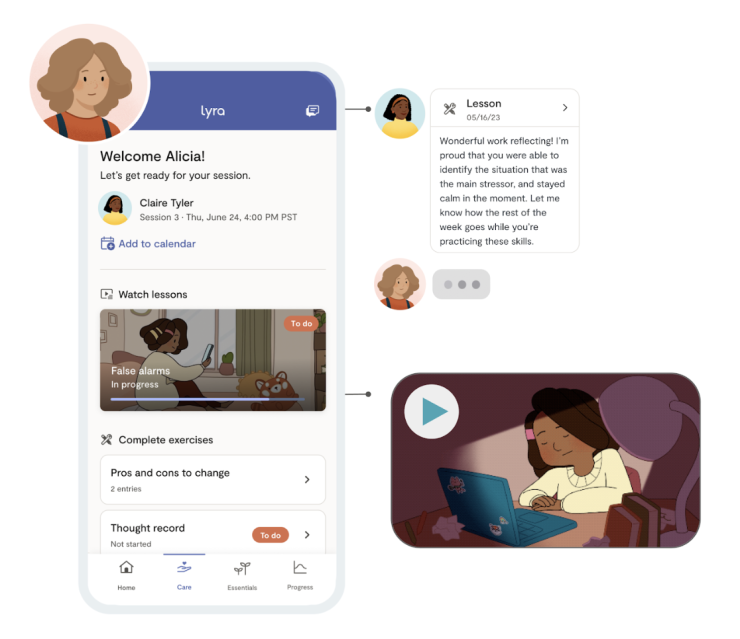Getting the right care
According to the National Institutes of Health, 80% of children and teens with mental health issues currently do not receive specialized mental health care. Without intervention, the consequences can be dire. According to a 2021 Pew Research Center survey, 22% of high school students said they had seriously considered suicide, and 10% had attempted suicide.
“Teenager mental health is in a crisis,” says Dr. Monica Wu, clinical product lead for family care products at Lyra Health. “Most mental health disorders actually begin by age 14, so this is really the sweet spot for teenagers. It’s a very formative time and if we can intervene early, we have a lot of potential to change the trajectory of their development, which is really important.”
read more:
Lyra Health’s new platform offers access to more than 6,500 providers who specialize in this age group, as well as digital lessons to help teens develop and grow.
“There’s definitely a huge ripple effect on teenagers’ mental health, and when young people are suffering, their parents and families are certainly suffering,” Dr Wu says. “That’s inevitably going to impact how they approach their work because there’s more stress and more distractions.”
read more:
Through the platform, teens can communicate directly with practitioners via text message and access on-demand resources in between sessions, “where all the magic happens,” Dr Wu says.
“When you think about therapy, it’s typically 50 minutes once a week, with daily life happening in between sessions,” she says. “That’s when you really want to practice your therapy skills, but unfortunately, a lot of families and teens don’t get that opportunity because they’re not receiving evidence-based care or they’re not doing their therapy assignments in between sessions.”

Lyra Health
Laila said that they
“We wanted to make this an immersive experience and optimize it for mobile, because teenagers have their phones with them all the time,” Wu said. “The video lessons cover situations that teens can relate to, like social anxiety, stress at school, and what their peers think of them. In our user research, we’ve heard comments like, ‘It’s like I’m watching myself,’ and ‘This is similar to what my friends are going through.'”
read more:
Offering benefits that meet the needs of family members of all ages is increasingly important for employees and employers alike. Progress has been made, but there’s always room for more support. Dr. Wu recommends offering flexibility so parents can schedule doctor’s appointments and take time off work when needed. ERGs can also be a supportive community for parents to share what they’re going through in a “safe space,” she says.
“There’s more support out there and more we can do,” says Dr Wu. “Parents should feel supported and acknowledged, rather than just focusing on their performance at work. This not only improves quality of life, but also reduces costs for families and employers.”


